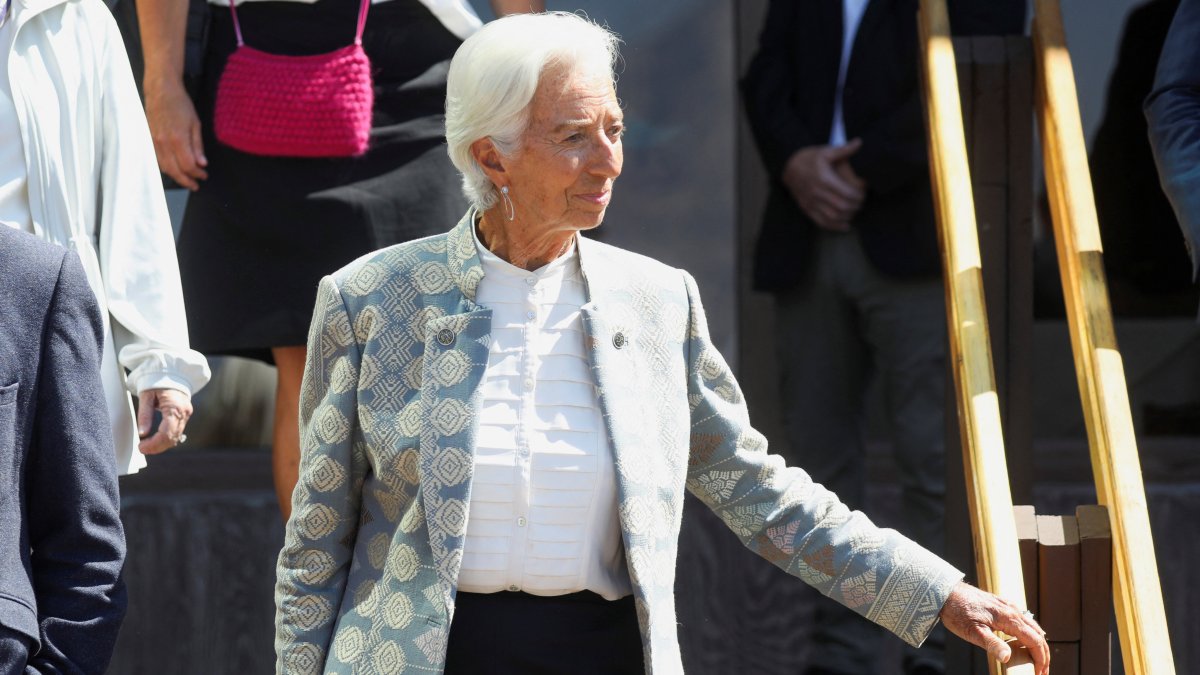An influx of foreign workers has provided a boost to the eurozone’s economy in recent years, helping offset shorter working hours and lower real wages, European Central Bank (ECB) President Christine Lagarde said on Saturday.
Migration into the European Union pushed its population to a record last year despite declining births, but governments are placing curbs on new arrivals in response to domestic discontent.
Lagarde listed a rise in the number of workers from outside the 20 countries that share the euro as a factor supporting the bloc’s economy, despite a growing preference for fewer working hours and a decline in living standards in some sectors.
“Although they represented only around 9% of the total labor force in 2022, foreign workers have accounted for half of its growth over the past three years,” Lagarde said in a speech at the U.S. Federal Reserve’s annual symposium in Jackson Hole, Wyoming. “Without this contribution, labor market conditions could be tighter and output lower.”
She said that Germany’s gross domestic product (GDP) output would be around 6% lower than in 2019 without foreign workers and added that Spain’s strong economic performance since the end of the COVID-19 pandemic also owed much to the contribution of foreign labor.
The EU’s population reached a record 450.4 million people last year, as net immigration offset a natural population decline for the fourth consecutive year.
But this has come at a cost of political backlash from local voters, who have increasingly turned to far-right parties.
Germany’s new government, for example, has suspended family reunification and resettlement programs as it seeks to regain support from voters drawn to the Alternative for Germany party (AfD).
In the U.S., President Donald Trump has stepped up arrests of immigrants, cracked down on unlawful border crossings and stripped legal status from hundreds of thousands of migrants since his inauguration.

